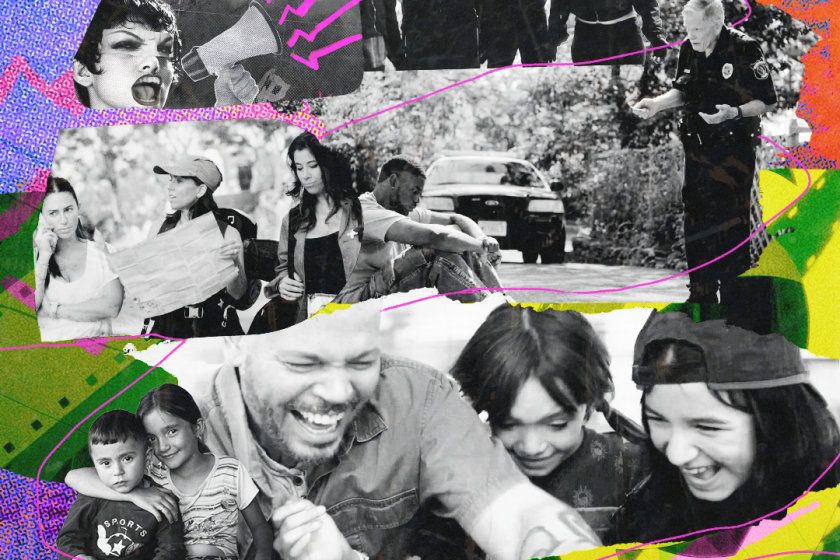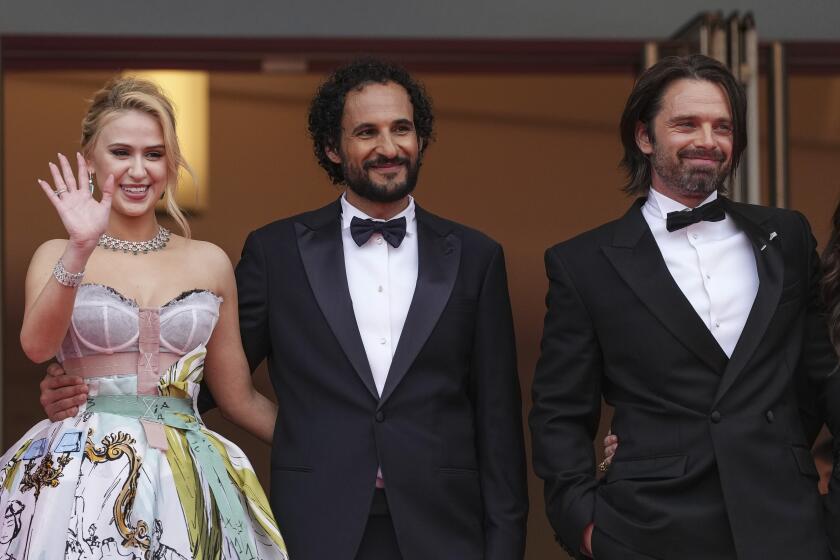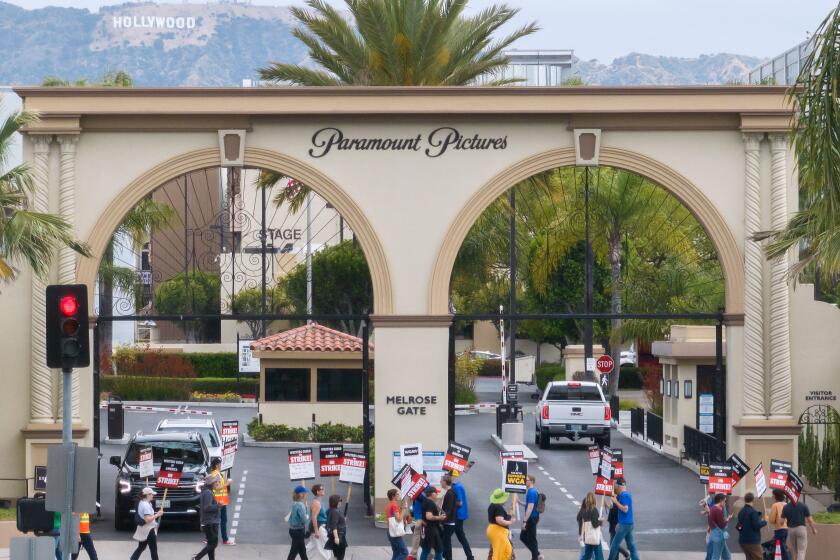Garrett Bradley explores ‘Time’ in a moving portrait of family and love
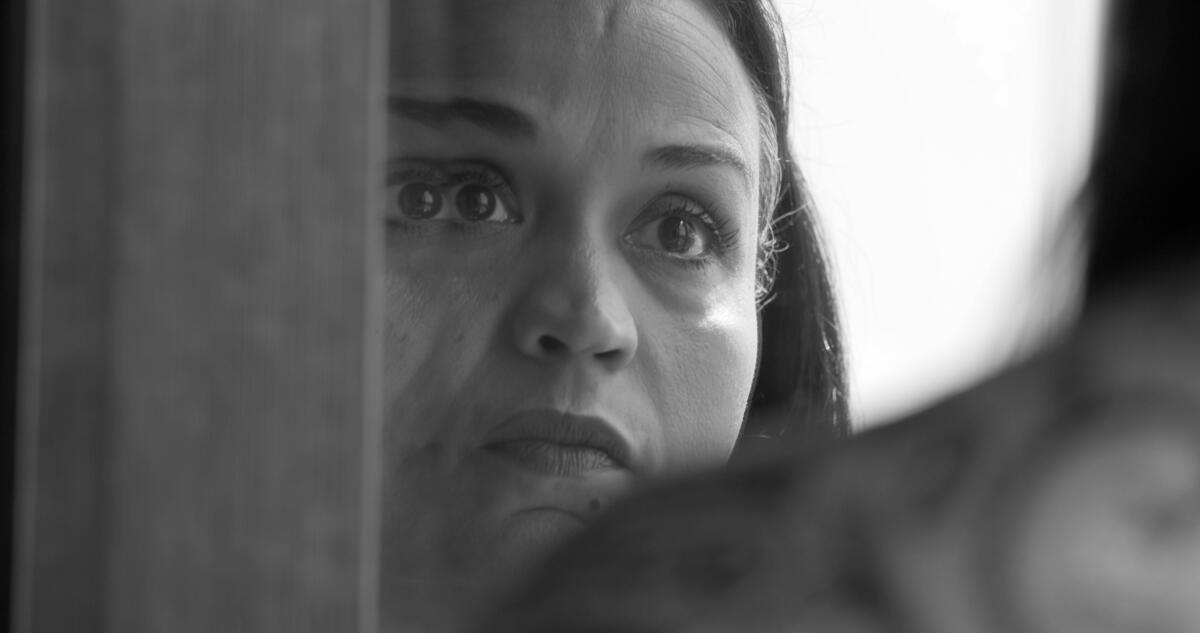
Hello! I’m Mark Olsen, and welcome to the newsletter companion to “The Envelope: The Podcast,” where my cohost, Yvonne Villarreal, and I bring you highlights from each week’s episode.
Well, we jumped the gun. Our podcast episode featuring Mads Mikkelsen and Thomas Vinterberg that was sent out earlier today will not go live until next Wednesday. This week’s podcast makes up for that oversight with an in-depth conversation with filmmaker and artist Garrett Bradley. We apologize for the mix-up!
As things have settled in after last week’s Oscar nominations, it’s now possible to get a clearer view of the field. Glenn Whipp took a look at the argument to be made for each of the eight best picture nominees, as well as suggestions for how their respective campaigns move forward.
From the Oscars to the Emmys.
Get the Envelope newsletter for exclusive awards season coverage, behind-the-scenes stories from the Envelope podcast and columnist Glenn Whipp’s must-read analysis.
You may occasionally receive promotional content from the Los Angeles Times.
The WGA awards were given out on Sunday night. While their usual quirks of eligibility mean “Borat Subsequent Moviefilm” winning adapted screenplay over a not-competing “Nomadland” may not bring much clarity to the Oscar race, the win for “Promising Young Woman” in the original category perhaps does. Bet accordingly?
Glenn joined Justin Chang in looking back to the Oscars of 2001, the year of best picture nominees “Gladiator,” “Erin Brockovich,” “Traffic,” “Crouching Tiger, Hidden Dragon” and “Chocolat” but also films such as “Wonder Boys,” “Yi Yi,” “Beau Travail,” “In the Mood for Love,” “The Virgin Suicides,” “You Can Count on Me,” “The House of Mirth,” “CastAway,” “Almost Famous” and more.
The two of them went through the top categories to give a retrospective look at who won and who should have won, plus a conversation on why they are giving so much attention to an old awards show.
As Justin wrote of the trio of “Gladiator,” “Traffic” and “Crouching Tiger”: “Looking back at those three front-runners all these years later, it’s hard not to see them as a kind of Hollywood-at-a-crossroads snapshot, a collective vision of what the industry was already doing well and where it might be headed.”
Glenn added, “Any time some curmudgeon laments the academy’s efforts to diversify its ranks, complaining that the Oscars are no longer about quality but representation, I simply say, ‘ “Chocolat” was nominated for best picture — in a field of five nominees.’ What these cranks are mourning is that their point of view, their taste, though still dominant, is no longer so overwhelmingly dominant. Sound familiar, Justin?”
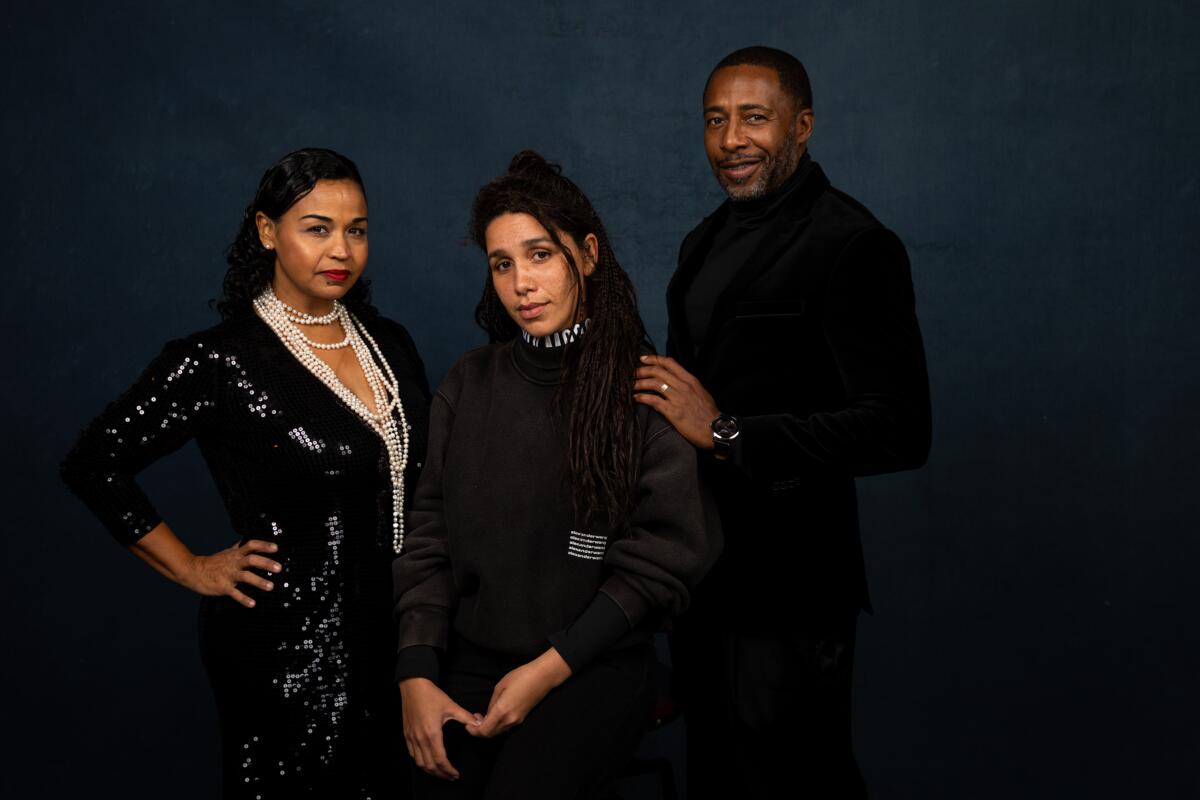
As I noted, this week on the podcast I talk to Bradley. Besides recently having a solo exhibition of her work at the Museum of Modern Art, Bradley won the documentary directing prize at Sundance in 2020 for “Time,” which also just picked up an Academy Award nomination.
The movie follows Fox Rich in her 21-year struggle to get her husband released from a Louisiana prison. Bradley weaves together more recent footage with archival home video, much of it shot by Rich herself.
“Time” is a complex and moving exploration of the justice system and its impact on one family, as well as a portrait of Rich’s development into a dynamic activist.
As Bradley said of the film’s origins, “Having to go back to the question of again ‘What is the intention in wanting to make this film?’ Every project I make starts off with conversations and asking that question with the people I’m making films with. And Fox and the family said, ‘Our story is the story of 2.3 million other American families, we feel that our story can offer hope.’ So for me as a filmmaker, I felt my responsibility is to try to distill the abstraction of hope and ask myself, ‘What does hope mean and look like for this family?’ ”
Thanks for reading, listening and subscribing. We have lots more conversations to come, including talks with Kate Mara for “A Teacher” and Cynthia Erivo for “Genius: Aretha.”
Listen to the podcast here and subscribe to “The Envelope: The Podcast” on Apple Podcasts or your podcast app of choice.
Can't get enough about awards season?
For more, follow us on Twitter at @villarrealy and @IndieFocus, and for a deeper dive into the best new movies, get Mark’s weekly Indie Focus newsletter.
If you’re enjoying this newsletter, please consider subscribing to The Times.
Feedback? We’d love to hear from you. Email us at awards@latimes.com.
Only good movies
Get the Indie Focus newsletter, Mark Olsen's weekly guide to the world of cinema.
You may occasionally receive promotional content from the Los Angeles Times.


